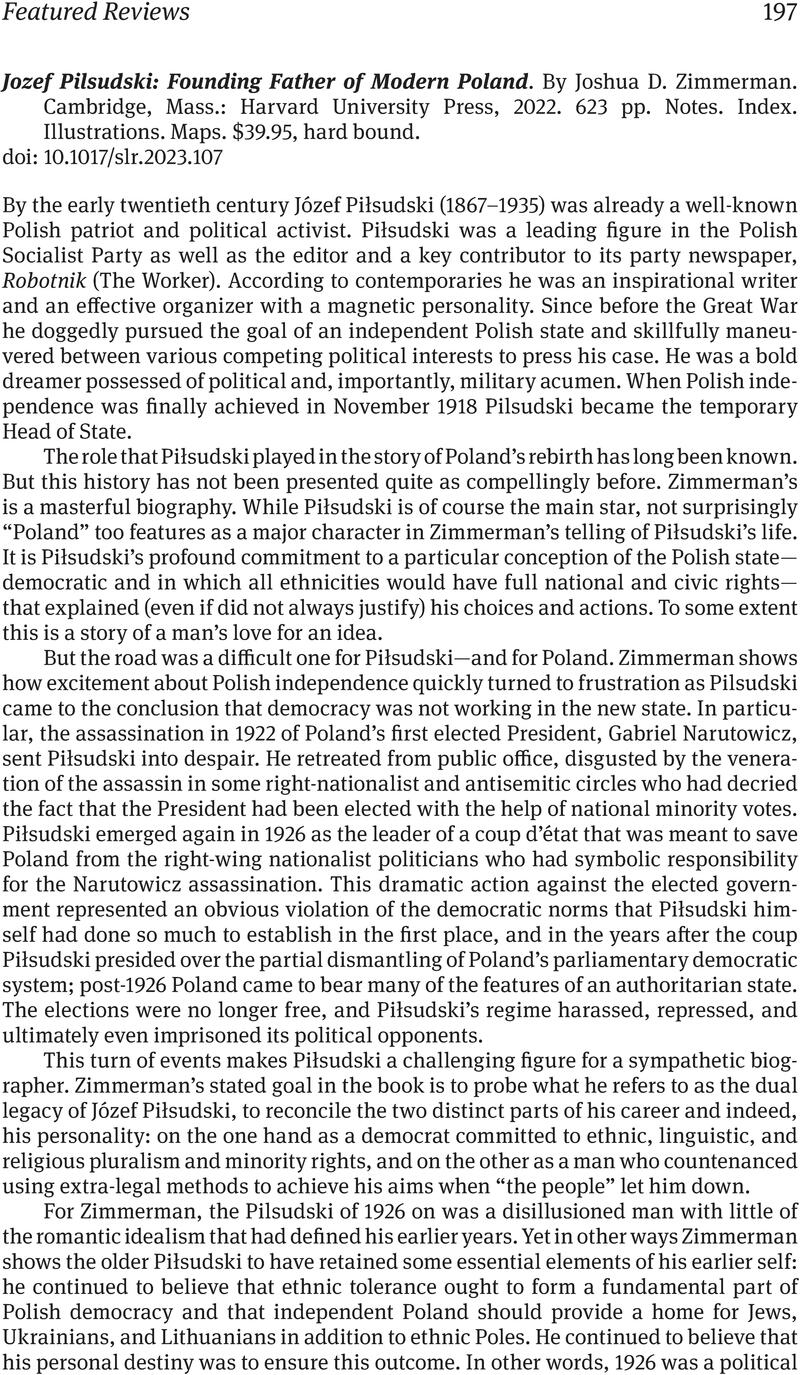No CrossRef data available.
Article contents
Jozef Pilsudski: Founding Father of Modern Poland. By Joshua D. Zimmerman. Cambridge, Mass.: Harvard University Press, 2022. 623 pp. Notes. Index. Illustrations. Maps. $39.95, hard bound.
Review products
Jozef Pilsudski: Founding Father of Modern Poland. By Joshua D. Zimmerman. Cambridge, Mass.: Harvard University Press, 2022. 623 pp. Notes. Index. Illustrations. Maps. $39.95, hard bound.
Published online by Cambridge University Press: 03 August 2023
Abstract
An abstract is not available for this content so a preview has been provided. Please use the Get access link above for information on how to access this content.

- Type
- Featured Reviews
- Information
- Copyright
- Copyright © The Author(s), 2023. Published by Cambridge University Press on behalf of the Association for Slavic, East European, and Eurasian Studies


